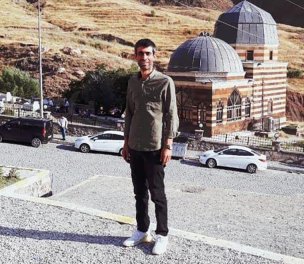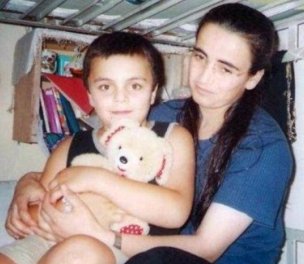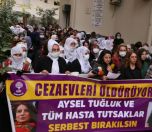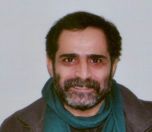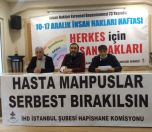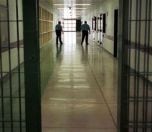HDP calls for ‘immediate action to protect ill prisoners’ rights and health’
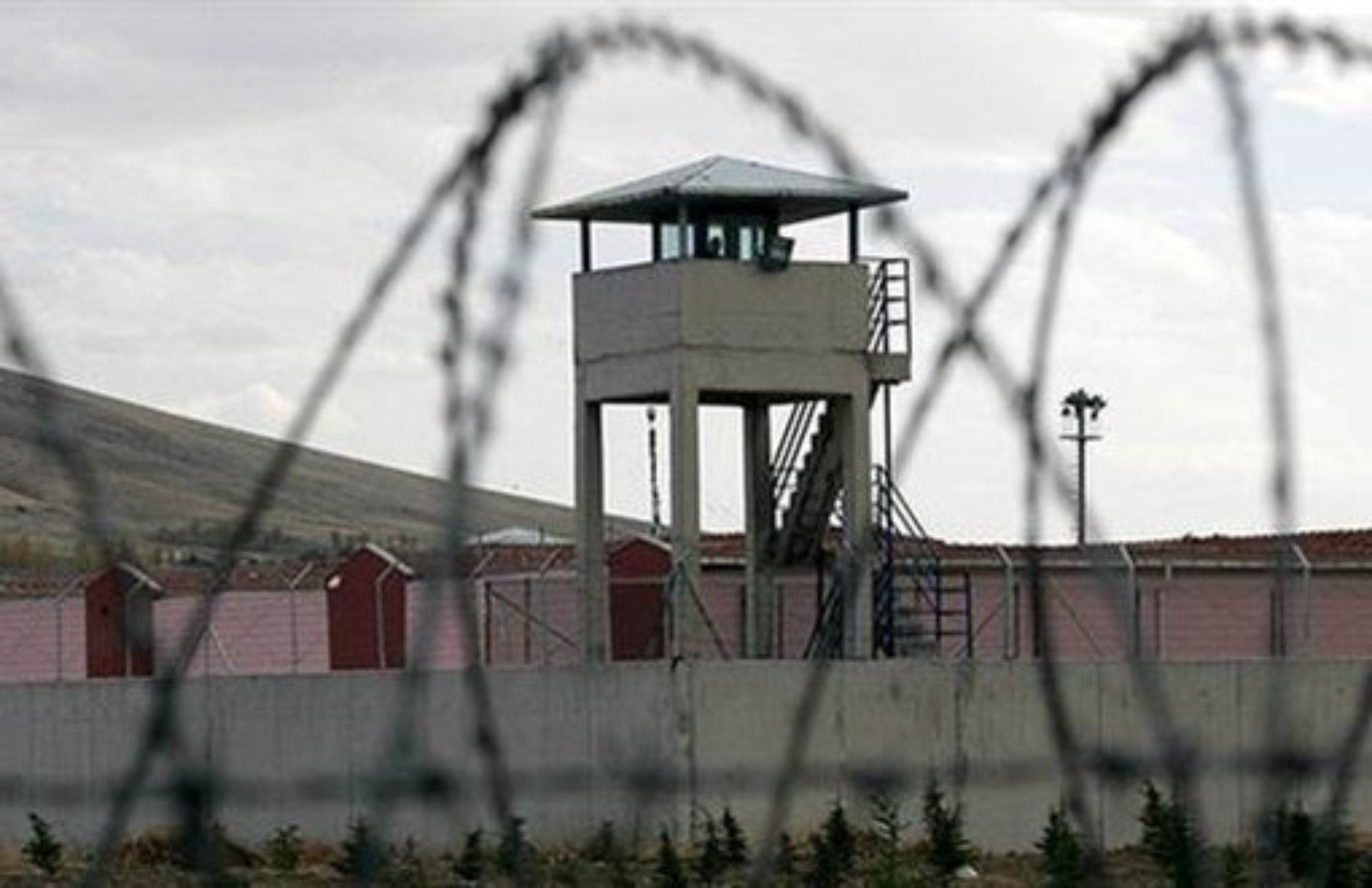
Feleknas Uca and Hişyar Özsoy, the Co-Spokespersons of the Peoples' Democratic Party (HDP) for Foreign Affairs, have released a statement about the recent death of two ill prisoners in Turkey.
Raising concerns over the worsening conditions and deaths in Turkey's prisons, Uca and Özsoy have stated that "Turkey's prisons have become centres of torture and ill-treatment, especially under the rule of the [Justice and Development Party] AKP government."
Noting that "there are also many sick prisoners who need the attention of the international community," the Co-Spokespersons have cited the recent data of the Human Rights Association (İHD), which has shown that at least 59 ill prisoners have died since the beginning of 2020.
"The İHD data shows that there are currently 1,605 sick prisoners in jail, 604 of them being seriously sick. Two of these seriously sick prisoners died on the same day, on December 15, 2021," they have recalled.
'Six-times increase during the pandemic'
Emphasizing that "the number of sick prisoners has increased almost six times due to the absence of appropriate measures and treatments in prisons during the COVID-19 pandemic," Uca and Özsoy have also reminded the international community about the following points:
"On April 13, 2020, a highly contested special amnesty law that enabled the release of some 90 thousand convicts was enacted by the votes of the AKP and its ultranationalist partner [Nationalist Movement Party] MHP.
"This unfair and discriminatory law categorically excluded from its scope all political prisoners facing 'terrorism-related charges.' It also applied only to convicts; the law also excluded those jailed pending trial."
CLICK - Top court rejects appeal against Law on Criminal Enforcement
'AKP bears prime responsibility'
Referring to the death of ill prisoners in Turkey's prisons in this context, the HDP statement has underlined the "prime responsibility" of the AKP for the death of ill prisoners. The politicians have briefly said:
"The AKP government bears prime responsibility for the death of these sick prisoners, as it controls the courts and forces them to make political decisions. These seriously sick prisoners might have been alive today if the Forensic Medicine Institution and courts had allowed their release.
The government, which has normalised torture and ill-treatment, has also encouraged the courts to take unlawful and inhuman decisions on sick prisoners.
Call to the international community
Against this backdrop, the HDP has urged "immediate action to protect ill prisoners' rights and health" in the following words:
"We once again call upon the Council of Europe – in particular the CPT, the Commissioner for Human Rights, and the Monitoring Committee of the PACE, the UN High Commissioner for Human Rights, the Office of European Union External Action, our sister parties, and all other democratic institutions and persons concerned with the rights and health of prisoners to take immediate action to protect sick prisoners' rights and health."
About the deceased ill prisoners
The HDP statement has shared the following information about the processes leading up to the recent death of two prisoners:
"One of these was Halil Güneş, who lost his life in Diyarbakır High-Security Prison No 2. Güneş was on the İHD list of sick prisoners and had not been released despite all calls. Although he suffered from severe cancer, Güneş had been kept in solitary confinement for five days.
The Diyarbakır Training and Research Hospital made a report that stated he could not stay in prison, but this was over-ridden by a report from the Forensic Medicine Institution, prepared on January 29, 2014, which concluded that Güneş could survive on his own and remain in prison, so preventing his release.
CLICK - Ill prisoner Halil Güneş loses his life in prison
"The other was Abdülrezzak Şuyur, who lost his life in İzmir Aliağa Şakran T Type Prison. Şuyur was diagnosed with lung cancer three months ago, and also had asthma. He received no treatment after his cancer diagnosis. As with Güneş, Şuyur was not released from prison despite applications by his lawyers and calls of human rights organisations.
"He was in prison at all and had already been challenged in the European Court of Human Rights (ECtHR), which found in his favour and ruled that his fundamental rights had been violated in 2006." (SD)




